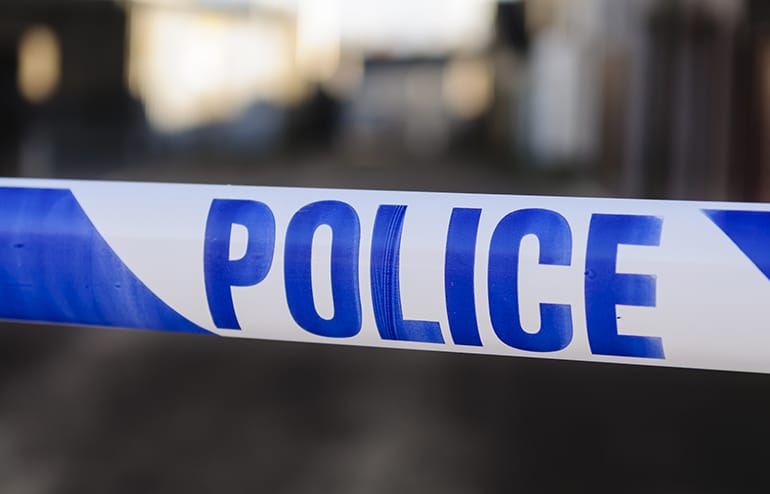Lawyers, their staff and even judges are vulnerable at courthouses, law offices and their homes. Here’s what to do if you receive a threat.

America is a violent country, and lawyers have not been spared. In 2023, a Florida lawyer who represented medical office workers was killed by the opposing party, a plastic surgeon. In 2022, a North Carolina lawyer was killed by his client at the conclusion of a mediation in the victim’s office. In 2021, a Georgia man killed his ex-wife’s divorce lawyer and set fire to the law office because the court had ordered the murderer to pay his ex-wife’s legal fees.
Table of contents
Your office should have a plan for physical security. At a minimum, that should include standards for controlling access to the building or office — though that won’t help if the perpetrator is already in the office. (Related: Read these recommended law office safety precautions from Stephen Kerson.)
Here’s What to Do If You Receive a Threat
Phone Threats
If not blocked, note the phone number of the caller. Be polite and stay calm. Listen without interruption. If possible, have someone call the police while the call is ongoing.
Ask who is calling if you do not recognize the caller. To the extent possible, write down the caller’s exact words. Record the call if you are able to do so unobtrusively.
Note if the person has an accent. Are they articulate? Do they display other speech mannerisms?
The caller’s emotional state can be obvious. Is the person angry, calm, incoherent, laughing, sanctimonious, drunk?
Can you detect any background noise? Is the person outside? Is audio playing in the background, e.g., a television program? Do you recognize it? Are there voices in the background? Adults or children?
Keep the caller talking to collect information to relay to the police.
Mail, Email and Text Threats
Police report that lawyers often shrug off threatening letters. Don’t.
Protect the letter and envelope from any more people handling them. Notify authorities immediately.
Likewise, report an email or text threat. Do not delete the message, and do not open any attachments.
Bomb Threats
If a caller claims to have planted a bomb, ask:
- When is it scheduled to explode
- Where is the bomb now
- What kind of bomb is it
- What does it look like
- Why did you place the bomb
Ask for the caller’s name and location. Pin down if the caller is male or female and their likely age.
Do you notice any unique voice characteristics, such as if speech is loud or soft, fast or slow, nasal or clear, high or deep range, lisp or stutter?
Suspicious Objects
If there is a suspicious package or object anywhere in the office, do not handle it. Keep everyone away from the object. Do not use mobile phones or pagers near the object.
Notify authorities immediately. Be prepared to specify the object’s location and describe it. Record and relate everything anyone knows about how the object was received or found. If you are instructed to evacuate all personnel, do it promptly.
Do not talk about the situation with anyone outside the office other than the police.
Safety Is for Everyone
Always take threats seriously. Everyone in the office should be trained in how to handle threats.
You might also find these articles helpful:
- “Predicting and Protecting Yourself Against Violence: Q&A With Security Consultant Craig Gundry” by Ruth Carter
- “Attorney Safety: Q&A With Stephen Kerson” by Ruth Carter (Kerson, who has conducted studies on violence against attorneys in 24 states, has tips for personal safety based on survey findings.)
- “Lawyer Safety: Are You Prepared?”
- “Tech Tips: Lawyer Safety in an IoT World“
















